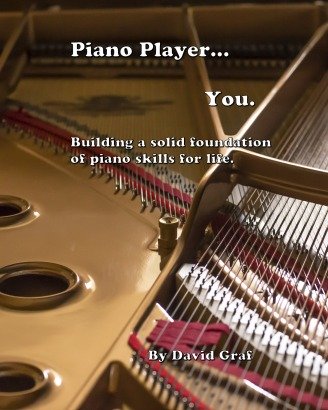The purpose of this website: helping you learn to play the piano. Building a strong foundation of piano-playing skills will lead to a lifetime of piano-playing joy.
The E-flat Minor Scales
Here are the E-flat Minor Scales: the natural minor scale, the melodic minor scale, and the harmonic minor scale. Fingerings are included.
Learn the scales ascending and descending. First, try one octave, and then try two octaves. (Eventually, you should be able to play each scale with both hands, ascending and descending, four octaves.)
Master the fingerings hand separately, and then together. For descending scales, just reverse the fingering you used ascending.
[Note: for the melodic minor scale, classical pianists like to play the melodic minor ascending, and the natural minor descending.]
As with all other scales that your play, multiply the benefits to your piano-playing foundation by following them with Arpeggios, a cadence, and a tune in the same key. Do this, and you will be greatly enhancing you knowledge and your skills. Keyboard imagery will be expanding in your mind and in your hands. This will help tremendously in all the other areas of piano study: tunes, music reading, and learning and memorizing piano pieces.
[The mastering of all major and minor scales will benefit your piano skills in countless ways. Your knowledge of keyboard geography and confidence in the feel and shape of each scale will help in reading and memorizing music, as well as understanding the structure of the music you play. Chords and chordal structures will make much more sense to you and you will see relationships and patterns which would not occur to you without proper knowledge of the scales. Also, your technique will grow and your ability to solve and master fingering issues will expand greatly. The pianist who has all the major and minor scales firmly in his head and in his hands will be much more confident and comfortable with all areas of piano playing then one who does not. So master the scales... all of them. Learn the fingerings for all, develop speed and dexterity using the metronome, rhythms and links. Play the scales in octaves, play the scales in thirds, in sixths, in tenths. Play them hands-separately, hands-together. Play them parallel and in contrary motion. Play them loud, play them soft, play them with musical shaping and touch. Play them in your pajamas, play them in your work clothes, play them in your football uniform... Play them, play them, play them. Oh yeah... don't forget to enjoy them! Scales can be lots of fun. You should never be bored when the scales are on your mind and in your fingers.]
For a more complete understanding of how to build your piano-playing foundation, read
For the most direct, organized, and progressive path to learning to play the piano, start
the Piano Skills Foundation series of piano lessons.
(Advertisement)
E-flat Minor Scale (natural minor)




E-flat Melodic Minor Scale




E-flat Harmonic Minor Scale




-click here for more about minor scales-

If you want to see a blueprint for a successful piano journey...
read
"Piano Player... You"
A guide to building a solid and complete piano-playing foundation.
-Click here to learn more about this e-book-
If you would like a step-by-step guide to help you on your piano journey...
start working through
"The Piano Skills Foundation" piano lessons
-Click here to learn more about this piano course-
Return from "E-flat Minor Scales" to "Piano Scales"
Looking for some piano music?
I have found Sheet Music Plus to be a fantastic resource for piano books & other materials. And they have instant digital downloads for thousands of individual pieces.
3 Ways To Support This Website
If you enjoy using true-piano-lessons.com and would like to help support it:
1. Buy the ebook, "Piano Player... You"
2. Purchase "Piano Skills Foundation"
3.Donation
